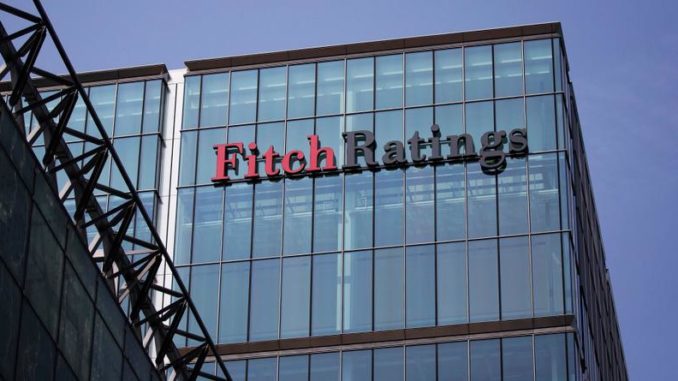International rating agency, Fitch Ratings has upgraded Benue State’s Long-Term Issuer Default Ratings (IDR) to ‘B’ from ‘B-‘ and National Long-Term Rating to ‘A(nga)’ from ‘A-(nga)’ as it affirmed Lagos and Kaduna states’ Long-Term Foreign- and Local-Currency Issuer Default Ratings (IDRs) at ‘B’.
The rating agency in its latest rating of the three states noted that the outlook for the states remain stable. According to Fitch, Benue state’s upgrade reflects its “improved fiscal performance, due to high allocations from the federal government, deleveraging during 2024 and manageable external debt, and our expectation of balanced operating performance even under a stressed scenario of declining oil-related revenue.
“These factors have driven the upward revision of its Standalone Credit Profile (SCP) to ‘b’ from ‘b-‘.” it noted as it said Benue’s risk profile remain vunerable. “Benue’s risk profile is influenced by its weak socioeconomic profile and reliance on transfers from the federal government, which can be volatile as they depend on hydrocarbons.
“Like all Nigerian states, Benue has broad duties and high spending needs, and is sensitive to the weak operating environment. About 80 percent of Benue’s total revenue in 2024 comprised federal allocated revenue, which is highly dependent on the sale of hydrocarbons.
“Internally generated revenue (IGR) is constrained by the state’s weak socio-economic profile and makes up less than 10 per cent of total operating revenue, which is below the average for Nigerian states.
Meanwhile, Fitch Ratings affirmed Lagos State’s Long-Term Foreign- and Local-Currency Issuer Default Ratings (IDRs) at ‘B’ with Stable Outlook, reflecting the state’s vulnerable risk profile by international standards and Fitch’s expectations of rising but sustainable adjusted debt.
It noted that internally generated revenue (IGR) underpins Lagos’s capacity to service its financial obligations, as evidenced by its Standalone Credit Profile (SCP) of ‘b+’. The IDRs are capped by Nigeria’s sovereign ratings (B/Stable). The Stable Outlooks mirror that on the sovereign.
Citing Lagos’ revenue robustness as midrange, the rating agency said “Lagos benefits from a broad tax base and diversified economy, which contribute to a stable revenue structure. This is led by IGR, which represented 63 per cent of its N2.077 tillion operating revenues in 2024 and is driven by moderately cyclical taxes such as personal income tax (PAYE).
“The stability of tax revenue is counterbalanced by some volatility in other operating revenue sources such as sales proceeds, rents, land-use charges, fees and fines. Fitch does not view Lagos as reliant on oil-related government transfers from the FAAC (Federation Account Allocation Committee), as statutory allocations (excluding VAT) represented 10 percent of Lagos’s operating revenue on average over 2020-2025. These transfers have high volatility due to the variation of oil prices and FX rates.
Fitch similarly affirmed Kaduna State’s Long-Term Foreign- and Local-Currency Issuer Default Ratings (IDRs) at ‘B’ with Stable Outlooks. The affirmation reflects the unchanged ‘b’ SCP, resulting from Kaduna’s ‘Vulnerable’ Risk Profile and a financial profile assessed in the ‘bbb’ category. The ratings also factor in the state’s growing debt to fund necessary capex for the development of basic infrastructure and social services.
The vulnerable risk profile of the state reflects the combination of five ‘Weaker’ key risk factors and one ‘Midrange’ factor. According to Fitch, Kaduna’s risk profile is influenced by the state’s weak socioeconomic profile and reliance on transfers from the federal government, which can be volatile as they depend on hydrocarbons. “Like all Nigerian states, Kaduna has broad duties and high spending needs, and it is sensitive to the weak operating environment.
“Kaduna’s revenue robustness is hampered by its weak socioeconomic profile and reliance on transfers from the federal government. In Fitch’s view, Kaduna’s estimated NGN403 billion operating revenue at end-2024 was dependent on monthly allocations from oil revenue from the FAAC (Federation Account Allocation Committee), as indicated by a 24% share of internally generated revenue (IGR). FAAC revenue (76%), which also includes VAT (22%), works as an equalisation mechanism for Nigerian states as it allocates revenue based on a predefined formula.





